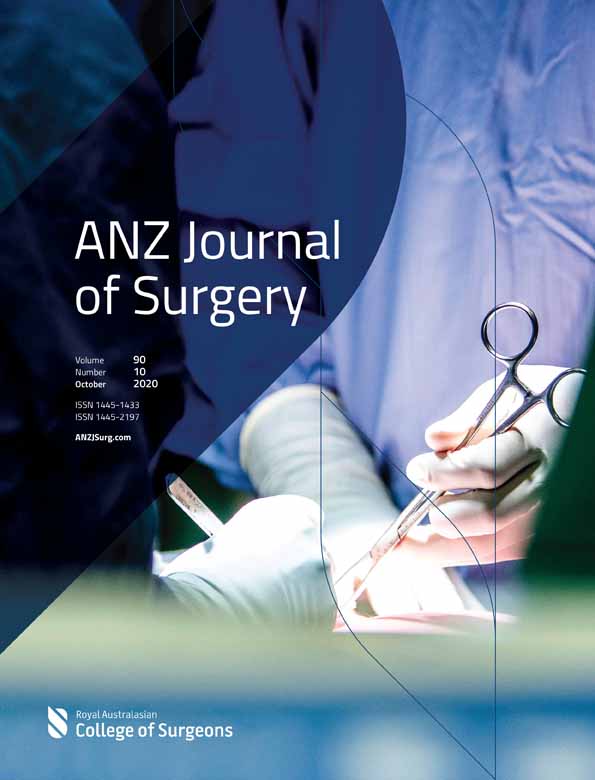Cytokines in abdominal exudate and serum predict small bowel obstruction following appendectomy
Abstract
Background
This study aimed to investigate the value of inflammatory markers for the prediction of small bowel obstruction (SBO) following appendectomy.
Methods
We included cases of acute appendicitis that underwent laparoscopic appendectomy (LA) in the Qingdao Municipal Hospital between January 2017 and January 2019. The cases were divided into an SBO group and a non-SBO group depending on whether patients had or did not have SBO, and patients were followed up for at least 1 year. The levels of interleukin (IL)-1β, IL-6 and tumour necrosis factor-alpha (TNF-α) in abdominal exudate and venous blood were examined using enzyme-linked immunosorbent assay.
Results
After 1 year of follow-up, there were 985 cases in the non-SBO group and 16 cases in the SBO group. The levels of IL-1β, IL-6 and TNF-α in abdominal exudate on post-operative day 1 in the SBO group were 172.5 ± 14.7, 2167.3 ± 372.1 and 253.9 ± 12.9 pg/mL, respectively, which were significantly higher than that in the non-SBO group. The serum levels of IL-1β, IL-6, TNF-α and C-reactive protein (CRP) in the SBO group were significantly higher than that in the non-SBO group before surgery. Post-operatively, the inflammatory markers above decreased significantly and became similar with time in both groups. The logistic regression showed that the levels of peritoneal IL-6, preoperative serum CRP and perforated appendicitis were significant risk factors of SBO. The specificity and sensitivity of peritoneal IL-6 were 0.81 and 0.921, respectively.
Conclusion
The IL-1β, IL-6, TNF-α and CRP in serum and abdominal exudate played an important role in SBO after LA. The peritoneal IL-6 was the most reliable prediction marker for SBO.
Conflicts of interest
None declared.




